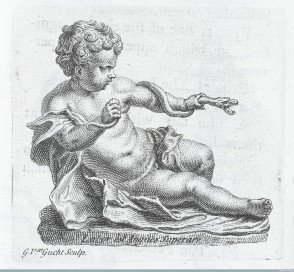In 1695 Mead set out on a Grand Tour of Italy. He visited the curious Grotta del Cane near Naples and noted its strange ‘venomous exhalations’. This intrigued Mead, who had a particular interest in poisons. He went on to do extensive research on poisons and venom, and his writings on these subjects led to him becoming regarded as an expert.
I met with Dr Mead to ask him about his work on this dangerous and unconventional subject.
Did your experience at the Grotta del Cane on your tour of Italy prompt you to make more experiments on your return?
I wished to carry my Searches farther, so I used to entertain myself at Leisure Hours with Experiments on Vipers and other Venomous Creatures; examining now and then the Texture of Arsenic, Mercury Sublimate, and the like Malignant Substances.
What were you hoping to discover?
My Design was to try how far I could carry Mechanical Considerations in accounting for those surprising Changes which Poisons make in an Animal Body.
I believe that Mathematical Studies, that is, Demonstration and Truth, are essential for the practice of Physick. Mathematical Learning is the distinguishing mark of a Physician from a Quack. He who lacks this necessary Qualification will be as ridiculous as one without Greek or Latin.
How would you go about extracting the venom?
I have oftentimes by holding a Viper advantageously, and enraging it till it struck out its Teeth, made it to bite upon something solid, so as to void its Poison.
A risky method! Is it true that for one experiment you drank venom?
My Aim was to disprove the popular Notion that Venom is poisonous even if you drink it. I enlisted certain Friends, one of whom dared to taste the Venom undiluted. We all agreed that it tasted very sharp and fiery, as if the tongue had been struck through with something scalding or burning. He who had chosen the undiluted Venom suffered a grievously swollen Tongue, but none of us suffered the Symptoms of Poisoning.
This shows that it is senseless for Physicians to advise against the Removal of Poison from Wounds by sucking. However, in sucking out the Poison, one must take care that there be no Ulcer in the mouth, as this may allow the Venom to enter the Blood.

Infant Hercules Strangling the Serpent, tailpiece from Richard Mead, A Mechanical Account of Poisons, 3rd ed., (London, 1745).
© Wellcome Library, London
In your treatise A Mechanical Account of Poisons (1702), you often refer to classical perceptions of vipers.
The Viper has always been so Notorious for its Venom that the most remote Antiquity made it an Emblem of what is Hurtful and Destructive. Nay, so terrible was the Nature of these creatures, that they were very commonly thought to be sent as Executioners of Divine Vengeance upon Mankind for Enormous Crimes which had escaped the Course of Common Justice.
Does venom lose its potency once out of the venomous creature?
My Experiments have shown this not to be the case. Moreover, the Ancients, who knew much concerning the Nature of Poison, provide many further examples. Galen, mentioning the Story of Cleopatra, relates that she killed herself by pouring the Venom of an Asp into a Wound made in her Arm by her own Teeth.
Do vipers have medicinal qualities of themselves?
Vipers have many profitable qualities. Patients ought to eat frequently of Viper-Jelly, or Broth; or rather, as the ancient manner was, to boil Vipers, and eat them like Fish; if this Food will not go down, tho’ really very Good and Delicious Fare to make use at least of Wine, in which Vipers have for a long time been infused. This will quicken the Circulation of the Blood and scourge the Blood Vessels.
Once again, many thanks to Dr Richard Mead for taking the time out of his busy schedule for this interview.
The Foundling Museum is exploring Dr Mead ‘in the round’, as a physician, patron, philanthropist and collector, in the exhibition The Generous Georgian: Dr Richard Mead – running until 4 January 2015.
The next post will look at Mead’s thoughts on the influence of the sun and moon on our health.
This post draws on Mead’s writings to answer a series of questions posed in an imaginary conversation.


